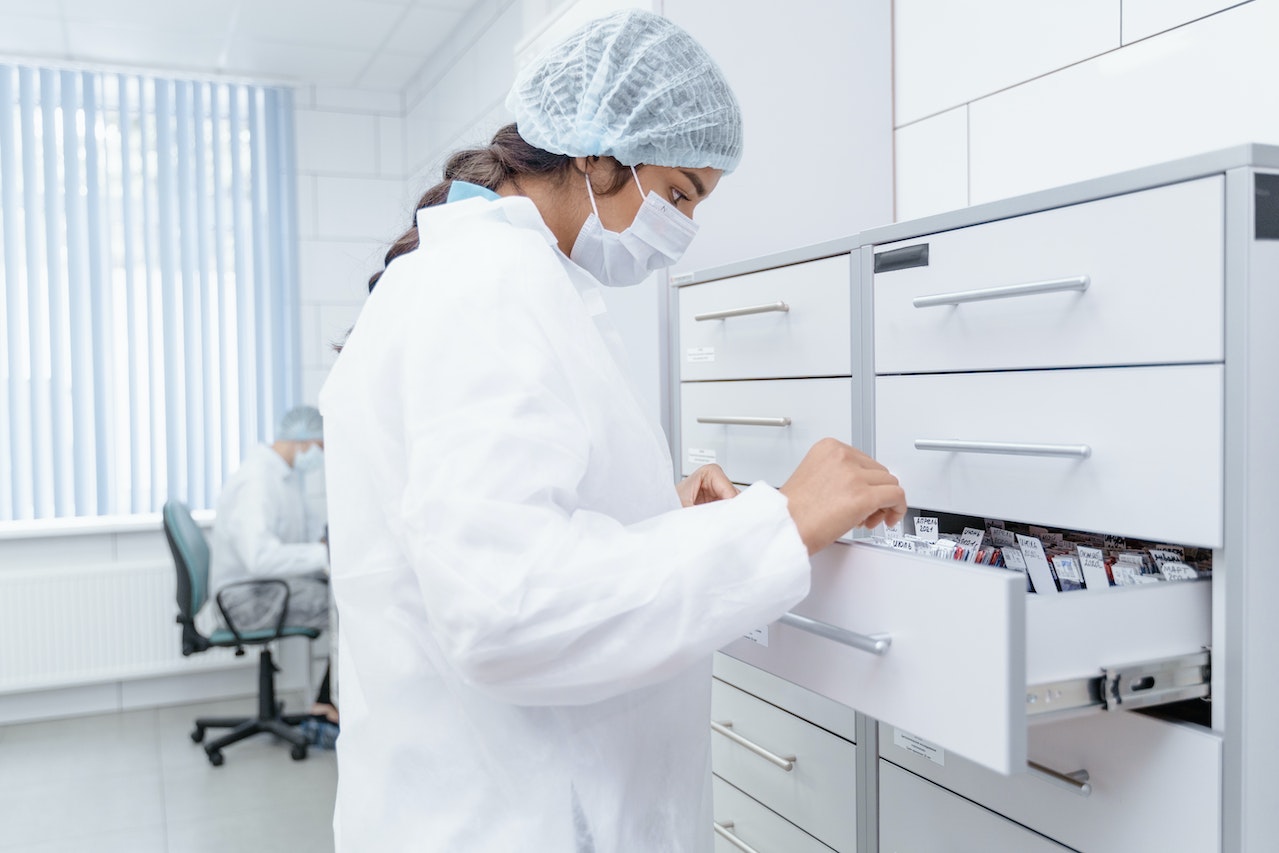B.S. Chemistry Program Map

Non-ACS General Track/Pharmacy Focus (Algebra Start)
This degree has as its core a number of fundamental courses in chemistry and allows for students with interests in additional fields to build a broad based curriculum.
Stats
60
Core Credit Hours
50
Major Credit Hours
10
Elective Credit Hours
- Plan Your Degree
- Crush Your Course
- Find Your Place
- Broaden Your Perspectives
- Connect Off-Campus
- Take Care of Yourself
- Pave Your Path
Plan Your Degree
Disclaimer: This program map is intended ONLY as a guide for students to plan their course of study. It does NOT replace any information in the Undergraduate Catalog, which is the official guide for completing degree requirements.
| Course Name | Credit Hours |
|---|---|
|
C1: ENGL 1101
English Composition I |
3 |
|
MATH 1111
College Algebra |
3 |
|
I2: XIDS 2002
First Year Seminar |
2 |
|
T1: BIOL 1107 + Lab
Principles of Biology I |
4 |
| A: Humanities | 3 |
Milestone:
- Overall B or better grades highly desirable to be competitive for pharmacy school.
| Course Name | Credit Hours |
|---|---|
|
C2: ENGL 1102
English Composition II |
3 |
|
M: MATH 1113
Precalculus |
4 |
|
F: CHEM 1211 + Lab
Principles of Chemistry I |
4 |
|
T2: BIOL 1108 + Lab
Principles of Biology II |
4 |
Milestone:
- Overall B or better grades highly desirable to be competitive for pharmacy school.
| Course Name | Credit Hours |
|---|---|
|
F: CHEM 1212 + Lab
Principles of Chemistry II |
3 |
Milestone:
- Complete Chemistry 2 with a B or better to be remain on track.
15 Fall Credit Hours + 15 Spring Credit Hours + 4 Summer Credit Hours = 34 Credit Hours
| Course Name | Credit Hours |
|---|---|
|
BIOL 2251 + Lab
Human Anatomy and Physiology I |
4 |
|
F: CHEM 2411 + Lab
Organic Chemistry I |
4 |
|
CHEM 2130
Sophomore Chemistry Seminar |
1 |
|
T3: MATH 1634
Calculus I |
4 |
Milestone:
- Overall B or better grades highly desirable to be competitive for pharmacy school.
| Course Name | Credit Hours |
|---|---|
|
F: MATH 1401
Elementary Statistics |
3 |
|
CHEM 3422 + Lab
Organic Chemistry II |
4 |
|
S2: ECON 2105 OR 2106
Principles of Macroeconomics or Principles of Microeconomics |
3 |
|
BIOL 2252 + Lab
Human Anatomy and Physiology II |
4 |
Milestones:
- Overall B or better grades highly desirable to be competitive for pharmacy school.
- ECON 2105 or 2106 are required for many pharmacy schools.
- Complete CHEM 3422 with a C or better.
13 Fall Credit Hours + 14 Spring Credit Hours = 27 Credit Hours
| Course Name | Credit Hours |
|---|---|
|
CHEM 3310K
Analytical Chemistry |
4 |
|
BIOL 2260 OR 3310
Foundations of Microbiology + Lab section or Microbiology |
4 |
| A: Humanities | 3 |
| P: Citizenship | 3 |
Milestones:
- Overall B or better grades highly desirable to be competitive for pharmacy school.
- CHEM 3310K may be taken summer after Year 2.
| Course Name | Credit Hours |
|---|---|
|
I1: COMM 1110
Public Speaking |
3 |
|
PHYS 1111 + Lab
Introductory Physics I |
4 |
|
CHEM 4711
Biochemistry |
3 |
| S1: Social Science | 3 |
| P: Citizenship | 3 |
Milestones:
- Complete 70-90 hours based on desired pharmacy school.
- Take PCAT.
- Public Speaking (COMM 1110) required for many pharmacy schools.
14 Fall Credit Hours + 16 Spring Credit Hours = 30 Credit Hours
| Course Name | Credit Hours |
|---|---|
|
CHEM 3510
Survey of Physical Chemistry |
3 |
|
PHYS 1112 + Lab
Introductory Physics II |
4 |
|
CHEM 4610
Inorganic Chemistry |
3 |
|
CHEM Course
3000/4000 level CHEM Elective course |
3 |
|
Elective
3000/4000 level Elective course |
3 |
Milestone:
- If students took BIOL 4503, one of the elective courses must be a CHEM 3000/4000.
| Course Name | Credit Hours |
|---|---|
|
CHEM 4910L
Tools and Applications in Chemical Research and Practice |
3 |
|
CHEM Course
3000/4000 level CHEM Elective course |
3 |
|
Elective
3000/4000 level Elective course |
4 |
|
Elective
3000/4000 level Elective course |
3 |
|
Elective
3000/4000 level Elective course |
3 |
16 Fall Credit Hours + 16 Spring Credit Hours = 32 Credit Hours
Crush Your Course
First Year:
- Choose Concentration (ACS track recommended).
Middle Years:
- Take Sophomore Seminar.
- Complete Organic Chemistry sequence.
- Complete Analytical Chemistry.
- Complete other supporting courses (see Advisor to have a clear roadmap).
Last Year:
- Take Senior Seminar.
- Take senior capstone course(s) and complete a senior project.
- Complete all required courses for a degree.
Find Your Place
First Year:
- Connect with your faculty mentor.
- Join clubs (Chemistry Association or Emerging Healthcare Leaders recommended).
Middle Years:
- Join a research group or seek for student employment (workshop leader, laboratory assistant).
- Attend program/department/college events.
- Attend senior research presentations and on-campus conferences.
- Study and hang out in the student lounge (TLC 2116).
Last Year:
- Attend program/department/college events.
- Attend on-campus conferences.
- Study and hang out in the student lounge (TLC 2116).
Broaden Your Perspectives
First Year:
- Look at the Chemistry Careers page on the American Chemical Society’s webpage.
Middle Years:
- Explore internships or part-time jobs in career-related areas (industry, pharmacy, etc.).
- Explore summer internships or REU programs.
- Explore volunteer opportunities with a club or in career-related areas.
Last Year:
- Re-examine career paths with a chemistry degree (ACS Career page, alumni connections, your own aptitude and interest).
Connect Off-Campus
First Year:
- Sign up for Handshake through Career Services.
Middle Years:
- Sign up for Handshake through Career Services.
- Create an account in LinkedIn.
- Talk to alumni guest speakers and make connections.
Last Year:
- Talk to alumni in a career field of interest, matched by your faculty mentor.
Take Care of Yourself
First Year:
- Look into on-campus self-care and stress resources especially Campus Center, Health Services, and Counseling Center.
- Find study buddies.
- Go to events, have fun (balance time between study, work, and fun).
Middle Years:
- Talk to your faculty mentor.
- Look into on-campus self-care and stress resources especially Campus Center, Health Services, and Counseling Center.
- Find study buddies.
- Go to events, have fun (balance time between study, work, and fun).
Last Year:
- Talk to your faculty mentor.
- Look into on-campus self-care and stress resources especially Campus Center, Health Services, and Counseling Center.
- Find study buddies.
- Go to events, have fun (balance time between study, work, and fun).
Pave Your Path
First Year:
- Look at the Careers page on the American Chemical Society’s webpage.
Middle Year:
- Write preliminary resume.
- Seek for resume-building opportunities related to your career goal (employment, research, activities, volunteering).
Last Year:
- Build hands-on experience through research and/or internships.
- Update your resume or CV.
- Apply for graduate schools, professional school, or jobs.
- Make sure to get help from Career Services for cover letters, resume, application, and interviews.
Careers

Career Opportunities
This degree may help you get work as the following:
- Analytical Chemist
- Chemical Engineer
- Geochemist
- Hazardous Waste Chemist
- Organic Chemist
- Pharmacologist
- Quality Control Chemist
- Synthetic Chemist
- Toxicologist
- Water Chemist
HeadingSub-Heading
Have any questions about your major?
Don't forget to check out Wolf Watch to explore degree requirements!
